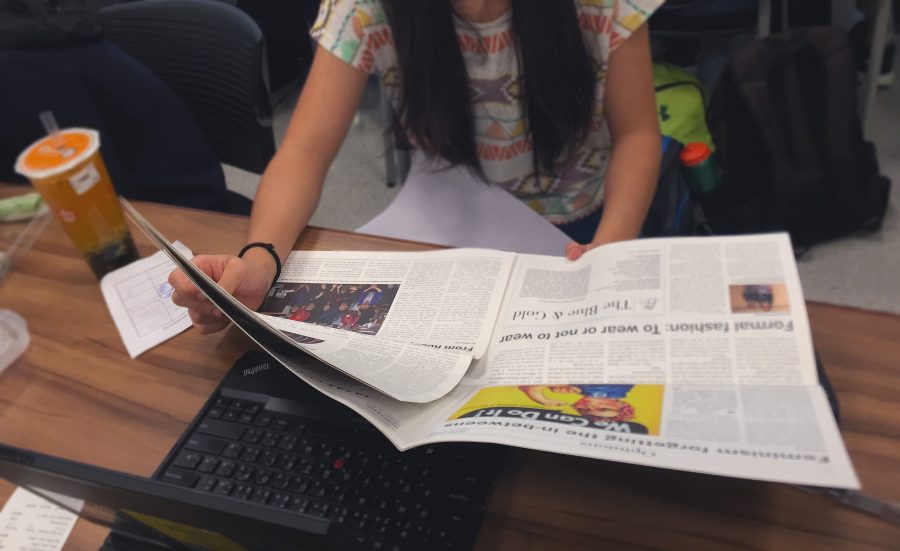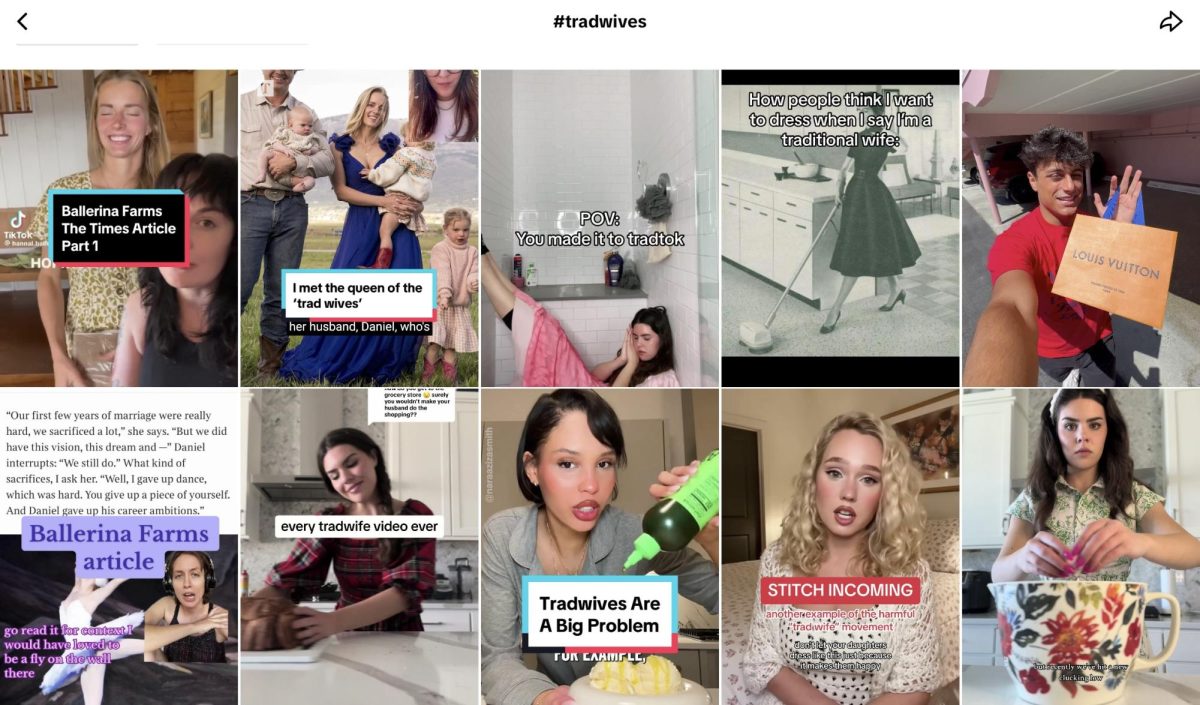My week journalistically speaking was a mix of receiving feedback from our February issue and celebrating Scholastic Journalism Week with daily posts that explain why student journalism matters and is so awesome. It was this very mix that prompted me to write this article.
Two of my friends sat down with me and my co-managing editor, Emily, at lunch and approached us with questions about transgender issues and acceptance after reading Christine’s feature on a transgender student. While initially I laughed with uncertainty and a bit of judgment in response to questions that clearly demonstrated ignorance, I quickly put aside my judgment for respect to the fact that one of them had come to me with genuine curiosity and a willingness to learn about a relevant issue that most students at TAS are not directly exposed to regularly. So, it was okay if he wasn’t completely “politically correct” or using all the right terminology—as long as he learns.
He explained to me a thought that he had been pondering for a while: he said that if a transgender male were to share male-oriented facilities, such as sleeping spaces, with him, it would make him uncomfortable. I proposed a hypothetical situation asking if he would be uncomfortable if it were a cisgender female (a female born a female) instead who wanted to sleep in the same space. He wanted to clarify and asked, “Wait, you mean a girl who’s just going to mind her own business and stuff away from me?” I quickly explained that the root of his discomfort was not confusion about gender identification but rather it was a misinformed notion that a transgender person would assumedly behave suggestively and inappropriately towards him (for no apparent reason). He then was able to picture a transgender boy as a person minding his own business, just as he himself would.
After having written my “why student journalism matters” piece and having mentioned the importance of the news platform to discuss subjects that matter and share them with a community, I realized that this instance was exemplary. Previously, the same friend whispered to me in class as he read the transgender feature article, “Wait, so, would I call [a transgender boy] a ‘he’ or ‘she’ now?” I answered, “‘He.’” and actually smiled afterwards with the understanding that someone wanted to and had learned something from the article. It’s unfortunate that perhaps for many students, their first exposure to gender, sexuality, race, religion, and other social identities that may not be outspoken controversies here but are in various other places (such as in the U.S., where the majority of students will reside in the near future) sits at surface-level or is yet to fully grow. Maybe this article served the first time some students really got to read about what being transgender means or had explored the idea of gender fluidity, personal opinions aside—that’s great.
I believe being so-called “socially aware” or being informed about anything, really, in general is an ongoing process which means you can at any time start educating yourself about issues. Possessing the curiosity to do so will expand your mind to interact with worlds of ideas other than the ones you are directly faced with on a daily basis—you can only learn so much from the few trips you take to the snack bar every day.
It’s absolutely okay, and I would argue that it’s awesome, to admit that we all don’t know much about a lot of things. I’ve definitely said some pretty stupid things mindlessly back in middle school, because I didn’t know what the heck I was saying. I’m reminded of those days when I hear people in the cafeteria now using derogatory slang and failing to recognize the implications of the words used, although used with innocent intentions. And I still am not nearly up to par with many issues. And that’s alright. I’m actively trying to read up on a variety of articles every day and took up an International Relations course this year to learn more about global interaction and conflict to better understand current events from an analytical viewpoint.
I’m not saying everyone needs to stack up on books and join all the classes. The Internet is your friend. We acknowledge it all the time; I’m sure we have all heard something along the lines of “Wow, we are so fortunate to have such advanced technology that provides everything at our fingertips!”—No, but, really. The endless questions you may have about all the issues that seem to be controversial, confusing, or weird can literally be answered within minutes with a quick Google search. Information is key to building not just a knowledgeable brain but also a stronger set of values and a greater sense of the world around you. Though we can voluntarily stick to the insides of our small privileged bubbles, worldly topics and issues will come up eventually and I’m sure you want to have some clue about it all. It’s important to understand the facts and to form your own opinions with well-supported arguments.
My tip: If you have a question, just ask Google. Google will not judge you.


![A collection of college flags. [PHOTO COURTESY OF AMBER HU ('27)]](https://blueandgoldonline.org/wp-content/uploads/2025/05/IMG_5029-1200x577.jpeg)

![An SAT word cloud. [PHOTO COURTESY OF WORDCLOUDS]](https://blueandgoldonline.org/wp-content/uploads/2025/05/SAT.jpeg)
![Collage of banned books, including “The Handmaid’s Tale” by Margaret Atwood. [MINSUN KIM/ THE BLUE & GOLD]](https://blueandgoldonline.org/wp-content/uploads/2025/04/IMG_4274-1200x681.jpeg)

![A collage of dark romance book covers from an online store for dark romance novels. [PHOTO COURTESY OF TRILOGYOFROMANCE.COM.AU]](https://blueandgoldonline.org/wp-content/uploads/2025/04/IMG_4272-1200x600.png)